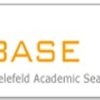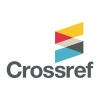Effect of round robin instructional approach on development of students’ mathematical skills in secondary schools
Abstract
Abstract
The study investigated the effect of round robin instructional strategy on development of students’ mathematical skills in secondary schools. The study was carried out in secondary schools in Ngor Okpala Local Government Area of Imo State, Nigeria. Three research hypotheses guided the study based on the objectives. The study was a quasi-experimental research type adopting the pre-test, posttest non equivalent control design. The instrument for data collection was a researcher made test titled “Mathematics achievement test MAT”. The instrument had reliability coefficient of 0.75 determined using persons product Moment Correlation Coefficient (PPMC). The experiment group was taught using round robin instructional strategy, while the control group was taught using conventional approach. The data generated were analyzed using ANCOVA to test the hypotheses at 0.05 level of significance. The results of the study showed that the round robin instructional strategy increases students' mathematics achievement. No significant difference was found between the achievement scores of male and female students taught mathematics using the round robin instructional strategy. It was recommended that secondary school mathematics teachers should try to use round robin instructional strategies to teach mathematics in order to increase students’ achievement.
Full Text:
PDFReferences
Reference
Adigun, F. A., Ajagun, G. A., & Madu, S. (2019). Effect of round-robin instructional strategy on senior secondary school students’ interest in electrochemistry in Federal Capital Territory Abuja, Nigeria. Journal of Education and e-Learning Research, 6(3): 129-134.
Aronson, E. (2012). The round-robin classroom. Beverly Hills, CA: Sage Publications
Asari, S., Ma’rifah, U., and Arifani, Y. (2017). The use of a cooperative round-robin discussion model to improve students’ holistic ability in TEFL class. International Education Studies, 10(2), 139-147.
Ayinla, J. O. (2015). Effects of curriculum-based measurement on senior school students’ performance in mathematics in Kwara South, Nigeria. (Unpublished doctoral thesis). Department of Science Education, University of Ilorin, Ilorin, Nigeria.
Roger, T. & David, W. J. (2012). "An overview of cooperative learning.
http://otl.du.edu/wp-content/uploads/2013/11/Overview-of-Cooperative-Learning.pdf
Ganyaupfu, E.M. (2013). Factors influencing academic achievement in quantitative courses among business students of private higher education institutions, Journal of Education and Practice, 4(15):57-65.
Johnson, D.W., Johnson, R.T., & Holubec, E. J. (2015). Circles of learning: Cooperation in the classroom, 4th edition. Interaction book.
Muharam, L., Ihjon, I., Hijrah, W., & Samiruddin, T. (2019). The effect of teaching style onStudents’ motivation and academic achievement: Empirical evidence from a public senior high school in Konawe Selatan Regency. International Journal of Scientific & Technology Research 8:1934–38.
Author & Ajuzie, N. E. (2021). Multimedia instructional approach and gender equity in mathematics achievement among secondary school students. Journal of Cudimac (J-Cudimac) 9(1), 54-61.
Author, Mang, O.O. & Onuoha, E. (2023). Flipped classroom and development of cognitive skills in mathematics among secondary school students. South Eastern Journal of Research and Sustainable Development. 13(2).93-113.
Obafemi, K.E., Yahaya, O., Moodu, Y., & Obafemi, T.O. (2024). Effect of round-robin instructional strategy on pupils’ academic achievement in mathematics. Indonesian Journal of Teaching in Science 4(2), 129-134.
Oni, L. (2018). Effect of cooperative learning strategy on students’ achievement in and attitude toward mathematics. Harvard Conference on Preparing Students for an Uncertain Future, Boston, USA, November 2018, 16(1).
Opolot-Okurot, C. (2016). Student attitudes toward mathematics in Uganda Secondary Schools.African Journal of Research in Mathematics, Science, and Technology Education, 9 (2), 167-174.
Sholihah, K. (2017). The effectiveness of round Robin summarizing on reading comprehension for the tenth grade students of Sma Nahdlatul Ulama 2 Gresik. Journal of English. Teaching Literature and Applied Linguistics, 1(1), 1-9.
Slavin, R. E. (2014). Cooperative learning in elementary schools. Education 42(1), 5-14.
Usniati, A., Intan, D. H. D., & Dian Y. (2023) Application of round-robin brainstorming type cooperative learning model to improve learning outcomes of grade 3 students of Tunas-Dawn Christian elementary school.
Yaowamarn A. (2018). The development of a learning package using the Think-Pair-Share technique to enhance science process skills for pratomsuksa 6 students. Master of Education thesis in Curriculum and Instruction. Dhurakij Pundit University, Thailand.
Zalmon, G. & Wonu, T. (2013). Role-play as a pedagogical method to prepare students for practice: The student’s voice, 3(3), 199-210.
DOI: http://dx.doi.org/10.48181/tirtamath.v7i1.31496
Refbacks
- There are currently no refbacks.
Copyright (c) 2025 Tirtamath: Jurnal Penelitian dan Pengajaran Matematika
Ciptaan disebarluaskan di bawah Lisensi Creative Commons Atribusi 4.0 Internasional .
Tirtamath: Jurnal Penelitian dan Pengajaran Matematika. Jurnal ini diterbitkan oleh Program Studi Magister Pendidikan Matematika Universitas Sultan Ageng Tirtayasa (cetak) dan Jurnal Untirta (eprint).
Alamat Penerbit: Program Studi Magister Pendidikan Matematika Kampus FKIP Untirta Jl. Ciwaru Raya, Cipare, Kec. Serang, Kota Serang, Banten 42117, Email: [email protected] |Klik untuk mengakses: Tirtamath: Jurnal Penelitian dan Pengajaran Matematika






